How WordPress vs. PageFly vs. Instapage stack up against each other
Compare Instapage with WordPress and PageFly to create high-converting landing pages. With personalization, optimization, and collaboration tools, Instapage helps you deliver experiences that drive results.
Get startedSee how Instapage stacks up against the competition
| Feature | Instapage | Other builders |
| Drag-and-Drop Tools | ||
| Conversion-optimized templates | ||
| Manual and AI-powered A/B Tests | ||
| AI content suggestions | ||
| Popups and sticky bars | ||
| Canvas and grid blocks | ||
| Reusable and global elements | ||
| Form and popup builders | ||
| Built-in Heatmaps | ||
| Central analytics dashboard | ||
| Ad-to-page personalization and collections | ||
| Contacts, lists, and email | ||
| Dedicated, full-service CRO experts | ||
| Enterprise-ready platform |
Leading the way in building high-performing landing pages





Why Instapage is the smarter choice for your campaigns
Get everything you need to build, scale, and optimize high-converting landing pages—without coding.
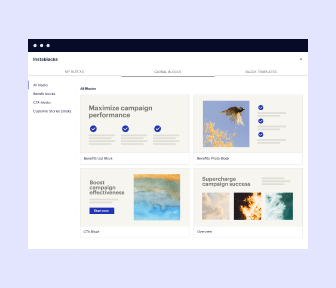
Easier page building without coding
Instapage offers a flexible and seamless page creation experience with a library of 500+ conversion-focused layouts, Instablocks®, a drag-and-drop builder, and AI content generation. With technologies like Thor Render Engine®, you can create on-brand, mobile-responsive landing pages that load quickly and start converting during initial visitor clicks.
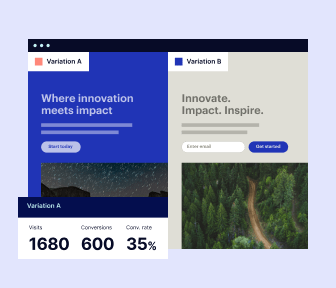
More insights — better results
Instapage lets you see in detail how each landing page experience and variation is performing so you can make targeted changes that boost page conversions. Use heatmaps for a better understanding of on-page activities, run A/B tests and AI-assisted experiments, and then track and evaluate results within robust analytics dashboards.

More personalized experiences
Instapage lets you quickly create high-performing landing pages tailored to each of your ad campaigns. Deliver personalized experiences for distinct audiences using dynamic text replacement. Effortlessly align specific advertisements to unique pages with AdMaps. Monitor audience-level metrics using our advanced data tools.
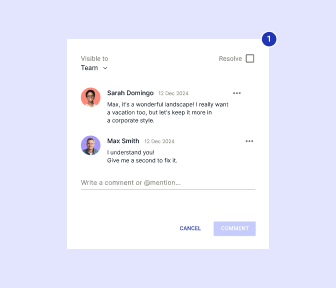
Built-in collaboration
Instapage collaboration capabilities bring your entire team together to speed up the process of landing page review, approval, and launch. No more frustrating and unnecessary revisions or edits scattered across emails. Provide instant feedback, conduct real-time page edits, and securely share your pages with outside stakeholders.
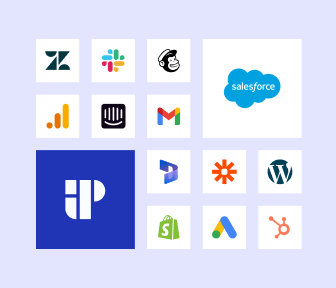
Free up time for your business
Invest time into business growth, not busy work. Launch landing pages faster with reusable forms and templates. Build once, reuse forever.
Explore all integrations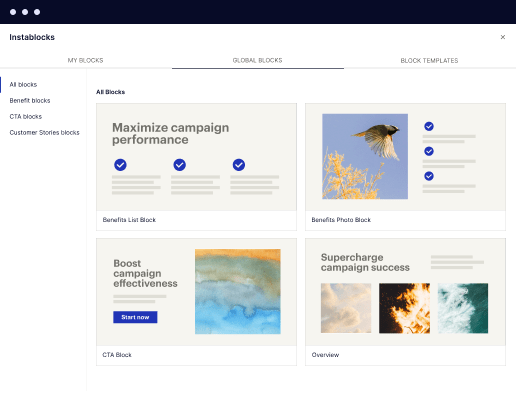
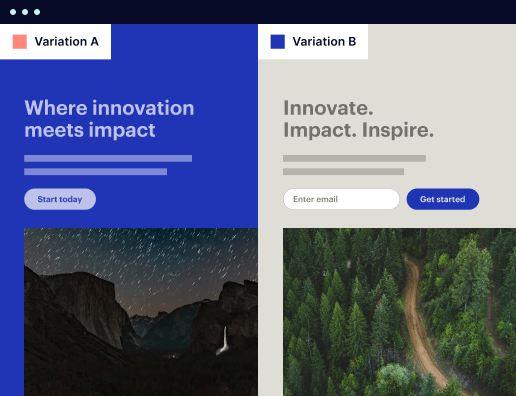
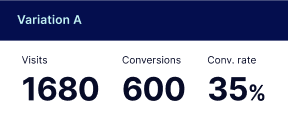


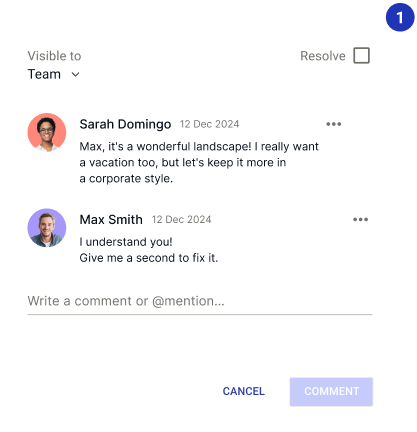

Easier page building without coding
Instapage offers a flexible and seamless page creation experience with a library of 500+ conversion-focused layouts, Instablocks®, a drag-and-drop builder, and AI content generation. With technologies like Thor Render Engine®, you can create on-brand, mobile-responsive landing pages that load quickly and start converting during initial visitor clicks.
More insights — better results
Instapage lets you see in detail how each landing page experience and variation is performing so you can make targeted changes that boost page conversions. Use heatmaps for a better understanding of on-page activities, run A/B tests and AI-assisted experiments, and then track and evaluate results within robust analytics dashboards.
More personalized experiences
Instapage lets you quickly create high-performing landing pages tailored to each of your ad campaigns. Deliver personalized experiences for distinct audiences using dynamic text replacement. Effortlessly align specific advertisements to unique pages with AdMaps. Monitor audience-level metrics using our advanced data tools.
Built-in collaboration
Instapage collaboration capabilities bring your entire team together to speed up the process of landing page review, approval, and launch. No more frustrating and unnecessary revisions or edits scattered across emails. Provide instant feedback, conduct real-time page edits, and securely share your pages with outside stakeholders.
Free up time for your business
Invest time into business growth, not busy work. Launch landing pages faster with reusable forms and templates. Build once, reuse forever.
Explore all integrationsGet started with Instapage in a few steps
-
Create your Instapage account
Start with Instapage by signing up via Google or your email. You'll get access to a free 14-day trial to discover Instapage capabilities. Feel free to cancel anytime during the 14-day trial if you decide that our product is not suitable for your business. -
Build and personalize your page
Create your first landing page from scratch or choose a template from 500+ customizable layouts. Use the drag-and-drop builder to add page elements, fonts, and backgrounds, refine content with AI, or add custom HTML, Javascript, and CSS. -
Review and make edits
Collaborate on page designs and streamline review processes. Invite your team members and stakeholders to review, edit, and provide feedback on your landing page. Collaborate knowing your page is confidential and only accessible to authorized users. -
Publish and track page performance
Publish your page to a domain or custom URL. Connect your pages to the ads you've created and track page performance within the analytics dashboard, run A/B tests and AI experiments, analyze results, and continuously optimize your landing page to maintain high conversions.
Instapage vs. WordPress vs. PageFly – The Ultimate Showdown
Choosing between different landing page builders is like assembling an all-star team for your marketing campaign. Each option brings its own unique abilities, but which one will help propel your goals forward? Whether you're looking to enhance conversions, streamline processes, or create stunning landing pages, this article will help illuminate the paths offered by Instapage, WordPress, and PageFly. Prepare for an engaging analysis that highlights each contender's strengths and how they can amplify your marketing efforts. With comparisons drawn across key features, usability, and overall performance, you're bound to gain valuable insights into the best match for your needs. So grab a cup of coffee and settle in as we explore who comes out on top in the realm of landing page builders in our comprehensive comparison.
Meet the Challengers
In the left corner, we have Instapage—celebrated for its landing page capabilities that significantly enhance conversion rates. Enabling marketers to cut costs while crafting relevant page experiences, it's revered for its seamless user interface. Next is WordPress, the heavyweight champion of content management systems, known for its flexibility and robust plugin ecosystem for all kinds of websites, including landing pages. And finally, there's PageFly, which prides itself on dragging clueless builders into the fast lane, promising heightened design features and optimization suited for eCommerce users. Each of these platforms holds its own as a contender in the landing page creator universe; some focus more on templates, while others emphasize integrations and eCommerce functionalities. This article will dissect how these three platforms stack up against each other within varied categories that are crucial to your success as a marketer.
Feature Showdown: Who Offers the Best Tools?
Template Variety and User-Friendly Design
When it comes to template variety and ease of use, all three platforms have different strengths. WordPress boasts a plethora of themes and plugins, allowing users to customize nearly every aspect of their website; however, that flexibility can sometimes lead to confusion for newcomers. PageFly offers a wider array of templates designed specifically for eCommerce, which may be ideal for those focusing heavily on online sales. Users reveal their admiration for PageFly’s drag-and-drop builder, making the design process smooth and straightforward. On the other hand, Instapage stands out with its focus on conversion-driven templates, providing users with an array of customizable options that ensure every landing page suits their specific needs. It empowers marketers to craft pages that not only look good but also convert well, fostering an engaging experience for potential customers. In terms of ease of use, Instapage’s simple interface often leads users to rave about how efficient it is to create landing pages tailored to their campaigns.
Instapage: The King of Customization and Conversions
Instapage excels in providing unmatched customization options and tools aimed at maximizing conversion rates. Its features feel almost like having a personal marketing assistant by your side. The platform allows for A/B testing of landing pages, ensuring you can refine your campaigns based on real-time data. Furthermore, with dynamic text replacement and advanced analytics, Instapage empowers marketers to create personalized experiences that resonate with their target audience. Brand trust, customer loyalty, and improved conversion rates result from these capabilities, making it not just another tool in your arsenal, but a vital partner in your marketing strategy. The user-friendly interface enables even novices to create stunning pages with little prior experience, making success feel accessible to everyone.
Loading Speed and Overall Performance: The Race
Imagine waiting in line for your morning coffee—it could spell disaster if it takes too long! Similarly, website speed can significantly impact user experience and conversion rates. In this round, we explore how each platform stacks up in loading speed and performance, recognizing the essential role of quick load times in maintaining visitor engagement. A lag in speed can lead to higher bounce rates, which no marketer wants, as that could mean lost potential customers. So, which of our contenders runs the fastest?
Instapage's Performance Perks:
- Optimized for speed, with dedicated hosting ensuring rapid loading times
- Built-in performance tools aimed at improving conversion rates
- Visual optimization helps streamline load times without sacrificing content quality
- Dynamic caching feature further enhances overall site speed
WordPress Speed Highlights:
- Website speed heavily depends on the hosting provider, which can vary widely
- Utilizes a range of caching plugins to improve loading times
- Performance can be enhanced with careful theme selection, but requires technical knowledge
PageFly Speed Benefits:
- Quick page loading due to optimized pages tailored specifically for online stores
- Cloud hosting capabilities ensure stable performance during high traffic
- Built-in tools to assist with optimizing images and scripts for faster load times
Reflecting on the speed and performance of our contenders, it's evident that Instapage leads the pack with its tailored focus on rapid loading times. Although WordPress offers flexibility, its performance heavily leans on hosting choices, whereas PageFly provides excellent solutions for eCommerce but still doesn't quite match Instapage's complete offering.
Usability Explained: Embracing Newcomers and Experts
Welcoming newcomers with open arms is vital for any platform aiming for success, and in this regard, each of our contenders excels! Instapage shines with its intuitive interface that guides users through the creation process, helping to eliminate confusion. Tutorials and customer support resources are abundant, which eases the transition into effective landing page building. WordPress, although it has a steeper learning curve due to its vast features, provides extensive documentation, community forums, and courses, empowering users to master the platform. PageFly maintains its edge through its drag-and-drop functionality, which streamlines the design process and keeps the learning curve gentle for newcomers. All platforms, each in their own right, offer spaces for people to grow and flourish, regardless of their starting point in their landing page journey.
Your Support Team: Always Ready to Assist
Think of customer support as the steadfast sidekick ready to swoop in during a bind. Instapage offers dedicated support channels through live chat, email, and an extensive help center, ensuring assistance is just a click away. WordPress relies heavily on community support, with countless forums and external resources to guide users through potential hurdles. On the other hand, PageFly comes equipped with responsive support staff available via chat and email to tackle issues swiftly. Each platform provides a wealth of information and community engagement, helping users get the assistance they require. Together, they form solid support squads ready to back you up when needed.
The Cost Comparison: Which Value Wins?
When it comes to price, each platform presents a unique range that caters to varied budgets. Instapage's pricing may be more premium compared to WordPress, which can be quite inexpensive if utilizing free themes and plugins. However, with WordPress, costs can grow with added features, themes, and hosting services, potentially leading to added expenses. PageFly generally operates with flexible subscription plans catered to small businesses but might also become pricey as additional features and resources stack up. Evaluate the pricing structures with your goals in mind, focusing on how each platform's cost aligns with the features offered. It's vital to weigh costs against individual organizational needs for optimal alignment with budgetary constraints.
In wrapping up this detailed showdown, it's clear that while Instapage, WordPress, and PageFly present their unique strengths, the choice ultimately revolves around your specific goals and requirements. Instapage stands out for its abilities to reduce costs and dramatically boost conversions, making it an appealing option for marketers focused on optimizing landing page experiences. Ultimately, choosing the right platform comes down to what you value most: features, affordability, or support options. Consider taking Instapage for a test drive with a free trial—it might just prove that it's the champion you've been looking for.










